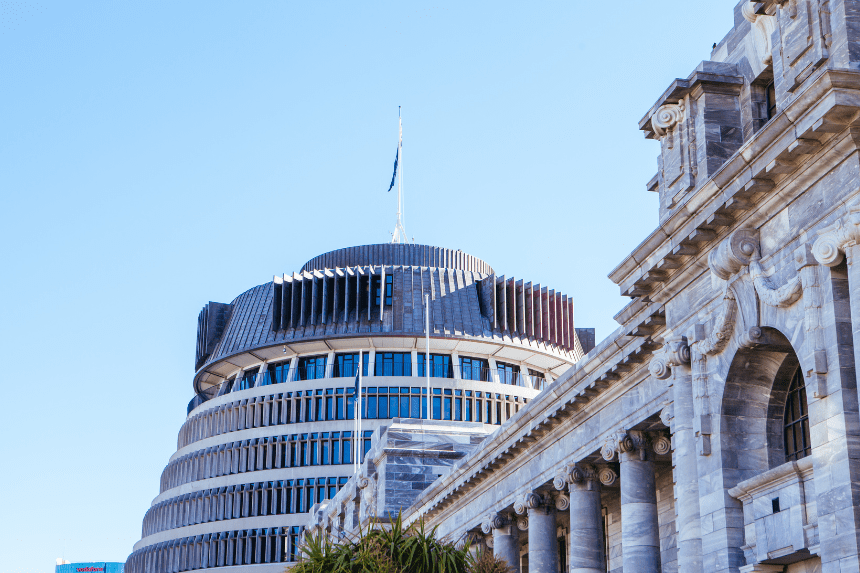One of the most important political events in recent years in New Zealand has turned out to be the Māori MPs’ suspension debate. It started with three Māori MPs suspended after their protest haka performance during a parliamentary session. This episode has generated a lot of discussion on delicate topics such as indigenous rights, freedom of expression, and cultural respect inside political institutions both here and abroad.
Along with co-leaders of the Māori Party, Rawiri Waititi and Debbie Ngarewa-Packer, the three MPs engaged were opposition MP Hana-Rawhiti Maipi-Clarke, who started the haka. Maipi-Clarke got a seven-day punishment; Waititi and Ngarewa-Packer were banned for twenty-one days. In the parliamentary history of New Zealand, these suspensions are unparalleled; the longest previous punishment there lasted just three days. The seriousness of these fines indicates the government’s strong attitude on the occurrence, but also draws attention to mounting political unrest in the nation.
What set off the Protest Haka and the Suspension?
The introduction of the Treaty Principles Bill directly led to the protest haka. This divisive law aimed to formally clarify the terms of the Treaty of Waitangi, the 1840 pact between the British Crown and Māori chiefs supporting bicultural government and national identity of New Zealand. Proposed by the right-wing Act Party, the measure sought to explain the terms of the treaty, which some felt had caused racial conflict in the nation.
Critics, however, mostly rejected the measure, claiming it would aggravate racial tensions and jeopardize years of efforts toward Māori rights and recognition. Many saw the measure as a danger to the values of cooperation, protection, and involvement that define New Zealand’s relationship with its indigenous people—those which define the spirit of the Treaty.
Maipi-Clarke answered in parliament whether Te Pāti Māori supported the measure with the haka, a customary Māori war dance signifying resistance and strength. The dance went viral right away, drawing international media coverage and igniting discussion on the propriety of a protest in parliament.
In what ways has the public and government responded?
The suspensions were made possible by the parliamentary committee’s decision declaring the haka could have “intimidated” other MPs. Reactions to this choice have been somewhat divided. Proponents contend that the suspension sends a message about honoring institutional traditions and that parliamentary decency has to be preserved. Critics counter that the decision stifles Māori political protest and cultural expression.
Maipi-Clarke gave a stirring statement during the parliamentary discussion on the suspended penalty. She underlined that historically Māori voices have been suppressed and said, “We will never be silenced, and we will never be lost.” Her comments, stressing the political and cultural weight of the circumstances, really connected with many New Zealanders as well as foreign onlookers.
Public reaction to the larger framework of the debate has also been noteworthy. More than 40,000 people protested the Treaty Principles Bill outside parliament in November of last year. Strong public support for Māori rights and opposition to the measure shown by this great attendance confirmed that this was a national rather than only a parliamentary matter.
Furthermore, under fire were New Zealand’s Foreign Minister Winston Peters’s comments declaring Te Pāti Māori “a bunch of extremists” and asserting the nation “has had enough of them.” These remarks heightened political unrest and sparked demands for an official apology, underscoring the contentious character of the issue.
For Indigenous Rights in New Zealand, what does this mean?
The MāoriMPs’s suspension issue has attracted fresh attention on New Zealand’s continuous battle to balance its colonial heritage with the hopes of its indigenous people. Long crucial to this reconciliation process, the Treaty of Waitangi is the founding document of the nation and a symbol of cooperation between Māori and the Crown.
Still, as this debate reveals, there is ongoing conflict about how the treaty is understood and carried out. The suspensions highlight the difficulties Māori MPs encounter in speaking out for their communities and culture inside a political system that occasionally opposes progress.
Although New Zealand is known for leading the world in indigenous rights, events like this expose that ongoing work needs to be done. The reaction against the protest haka and the divisive measure emphasizes the continuous need for honest communication, knowledge, and cultural tolerance. Read another article on New Zealander returns
In what ways can the Suspension compromise Parliamentary Democracy?
From a democratic standpoint, the ban on MPs raises serious issues regarding political protest and freedom of expression. While parliamentary rules seek to uphold decency and decorum, some contend that disciplining MPs for cultural expression runs the danger of censoring minority voices.
With six of the 123 seats in parliament, the Māori Party is a minority voice but a powerful one in terms of advocating Māori concerns. Three of its members’ suspensions greatly diminish its parliamentary presence and may have an impact on its capacity to shape laws and discussions.
This evolution also fuels debate on how political systems allow cultural variety. For Māori people, the haka is a very significant cultural activity rather than a protest dance. Respect for tradition must be balanced with the legislative process by serious thought and mutual respect.
Looking ahead, what are the next actions?
The Māori MPs’ suspension issue calls to action for leaders and people of New Zealand. Constructive progress depends on encouraging polite discussions about the position of Māori culture in politics and society.
Parliament should review its laws to properly allow cultural expressions like the haka, thereby ensuring they are acknowledged as acceptable political speech forms. Māori history and culture educational projects could potentially aid in increasing public and legislative awareness.
Furthermore, political leaders have to help Māori people regain confidence. Reflecting the fundamental meaning of the Treaty of Waitangi, the government’s attitude to indigenous rights should give partnership and inclusion top priority.
Ultimately, the Māori MPs’ suspension debate concerns not only the suspension itself but also more general problems of democracy, rights, and identity in New Zealand. New Zealand has the chance to reaffirm its dedication to indigenous rights and build a more inclusive political future via candid and polite engagement.








